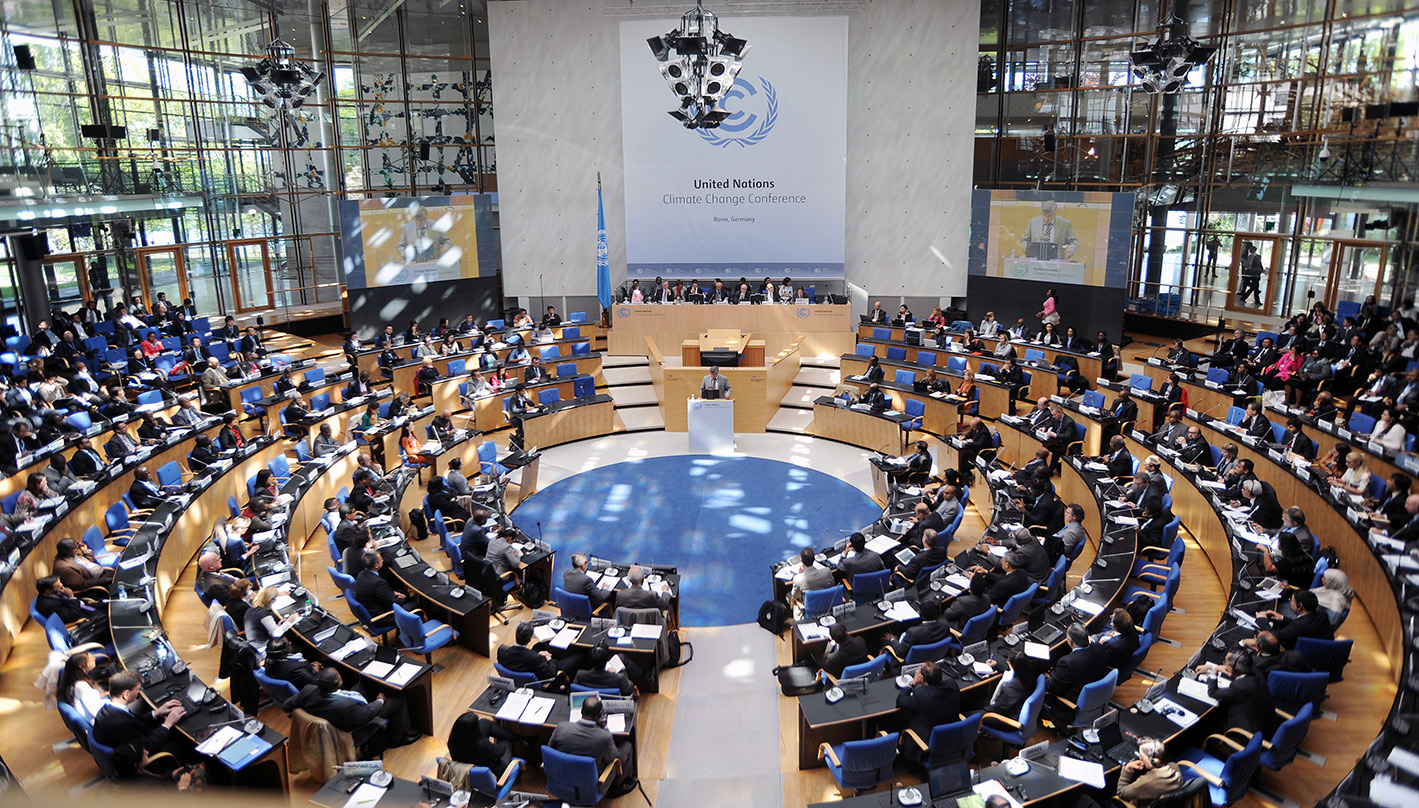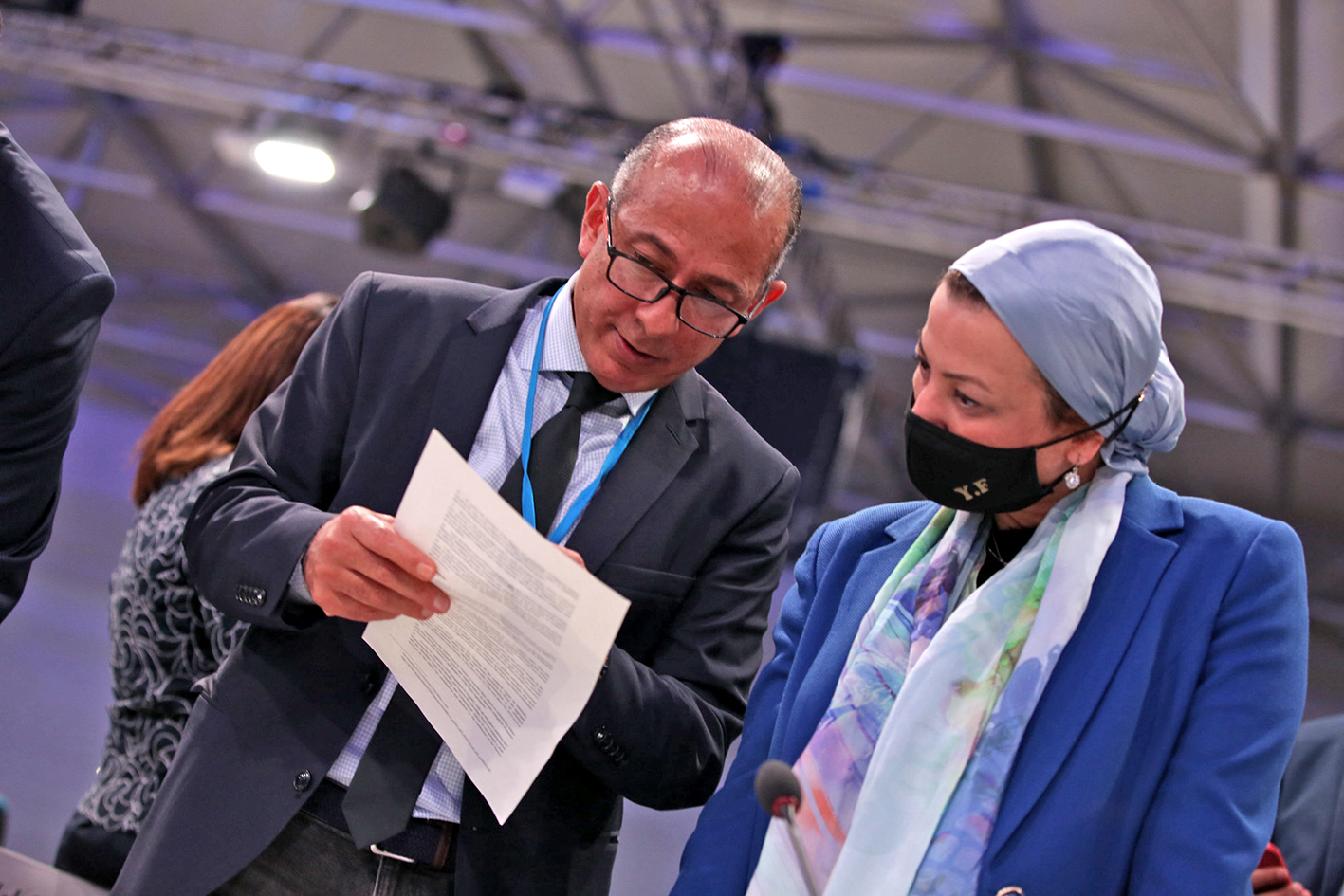
Written by: Farah Hassan
Date: 2022-09-07
A climate forward stand for a greener future for future generations

A climate forward stand for a greener future for future generations
Known as the Conference of parties, the COP is a series of United Nations climate change conferences, which have been running since 1995. The goal of these conferences is to review the progress made by the members of the United Nations Framework Convention on Climate Change (UNFCCC) to limit and mitigate climate change.
The last COP was held in Glasgow and hosted several bold collective commitments made by nations, including those to reduce methane emissions, stop and reverse the loss of forests, align the financial sector with net-zero by 2050, abandon internal combustion engines, quicken the phase-out of coal and stop international financing for fossil fuels.
Years of worldwide unity
The world joined forces in showing the willingness to reach the required agreements, which helped the Paris Agreement be adopted: a legally binding international climate change pact that was endorsed by 196 parties at COP21 in Paris on December 12, 2015 and went into effect on November 4, 2016. Primarily, the ultimate goal is to limit global warming to accomplish the 1.5-degree objective, strengthening our resilience and increasing our capacity for adaptation.
This is especially true in view of the clear warnings in the most recent IPCC reports and in the wake of COP26 in Glasgow and as it drew to a close, priorities for the COP27 were stated by Egyptian authorities, who emphasized climate financing and adaptation: a novel strategy considering that past COPs largely concentrated on mitigation and cutting emissions to prevent climate harm.
With regards to COP27, Egypt made it clear that rather than pursuing more carbon reductions, it intended to concentrate on executing current goals and hosting the upcoming COP27 that will be held in the green city of Sharm El-Sheikh this coming November on behalf of all the African nations while promoting the interests of the developing world. The country presently receives 27% of all multilateral climate money in the MENA region; and as it has issued the first sovereign green bonds in the region, it intends to increase its access to climate funding and investment.
The United Nations Framework Convention on Climate Change was adopted 30 years ago this year. Since then, the world has made great strides in the battle against climate change and its harmful effects on the environment; we are now better equipped to comprehend the science underlying climate change, evaluate its effects, and create instruments to address its causes and effects.

Serious Steps on Climate Action
Thirty years and twenty-six COPs later, the urgency with which we must act regarding rapidly reducing greenhouse gas emissions still prevails. Taking necessary steps to assist those in need by adapting to the negative effects of climate change, and finding the appropriate formula that would ensure the availability of necessary means of implementation that are indispensable for developing countries. Particularly in the midst of successive worldwide problems, including the ongoing food security issue aggravated by climate change, desertification, and water shortages especially when it comes to Africa, which bears the brunt of the consequences.
Optimistic projections show that if present climate promises were followed through, the globe would still be on course to experience 2°C of warming by the end of the century, with significantly more damaging effects than if warming was limited to 1.5°C. In a world warmed by 2°C, 37% of the world's population, compared to 14% in a world warmed by 1.5°C, might experience intense heat waves on a regular basis, with poorer nations predicted to be the hardest affected.
A 2°C trajectory also increases the possibility of tipping points, such as the melting of the ice sheets in Greenland and Antarctica, which would result in uncontrollable climate change. The UN Secretary General has urged for quicker carbon reduction by the end of 2022 to avoid a ‘climate catastrophe’, and the new IPCC study cautions that time to modify the warming trajectory is now ‘short and quickly closing’.

A United Africa for a Resilient Future
Egypt’s Ministry of Environment issued a booklet on its preparations to host the UN Climate Change Conference 2022 (UNFCCC COP27), under the title "Road to COP27...A United Africa for a Resilient Future” in the city of Sharm El Sheikh.
The booklet states, “we’ve started the journey from Sharm El Sheikh, the city renowned for its eco-tourism and protected diverse natural habits, through the UN Convention of Biodiversity Conference of Parties (COP 14) and will continue ahead to COP27. We are committed to working with all countries and joining forces with civil society, companies and people on the frontline of climate change to inspire climate action ahead of COP 27 in 2022” adding on “the upcoming COP27 will build upon the previous success of the African Continent Priorities, mainly the African Renewable Energy Initiative and the African Adaptation Initiative. Africa needs technical and financial support to tap on the abundant renewable energy resources to secure clean energy necessary for achieving SDGs,”.
In addition, the booklet has established a number of objectives in order to achieve consistency and compatibility between urgent development goals and environmental sustainability, as well as to integrate environmental dimensions into various development fields through the implementation of clear policies and precise goals. Through the issuance of green bonds, Egypt hopes to boost the percentage of green investments to 50% of total government spending by the year 2024.

Sharm El-Sheikh: The Green Metropolis
Since Egypt was announced as the host country for the next United Nations Conference of Parties on Climate Change (COP27), all state agencies have been working to prepare for the global event, and measures have been taken to designate Sharm El-Sheikh as a green city.
The goal of making Sharm El-Sheikh a "green metropolis" was to promote the use of clean energy, encourage financial support for environmental protection, and prioritize the creation of many renewable energy projects. Sharm El Sheikh, also known as the "green city of peace," was selected because it has played home to a number of international events and was named the finest city for peace and charm by UNESCO.
According to the Ministry of Environment, Sharm El-Sheikh will only have electric automobiles and buses, and more than 100 charging stations will be built for them. The solar energy capacity will be boosted with this system to reach 1000 megawatts instead of 300 megawatts, and all hotels in Sharm El-Sheikh will be powered by solar energy through the spaces within each hotel independently utilizing the net metering method.
As a developing country, Egypt’s negotiating position is supported by UNFCCC provisions that recognize differentiated responsibilities and respective capabilities of nations, the African country will be looking forward to welcoming everyone at COP27 in Sharm El-Sheikh, where the world will once again unite to reaffirm its commitment to the global climate agenda despite the challenges and unpredict abilities of the modern era going to Sharm El-Sheikh with a deeper commitment and greater ambition for climate financing, adaptation, and mitigation, and showcasing real-world examples of commitments and pledges being carried out. Showing off national solidarity in the face of an existential threat that can only be defeated by concentrated effort and successful execution.
Egypt will make every effort to make sure that COP27 is remembered as the conference where the world transitioned from discussion to action, where words were turned into deeds, and where we all started down the path of sustainability, a fair transition, and ultimately a greener future for future generations. Despite having the lowest percentage of CO2 emissions, the African nation experiences the effects of climate change. Egyptian Minister of Environment Yasmine Fouad stated that the booklet “features Egypt's efforts to support green transformation and nature conservation nationally, regionally and internationally”.





